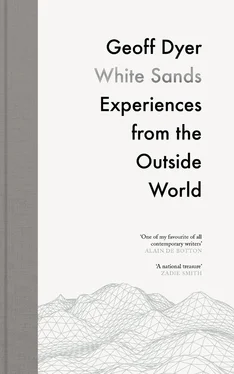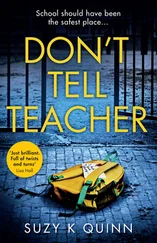I was glad to be able to concentrate on the pictures, to avoid directing my attention completely on Li — especially since, as we had bent forward together to study the camera, our shoulders had touched. They were still touching — my shirt against her bare skin — as we clicked though the images and came to one taken five minutes earlier, showing the two of us sitting where we were now, surrounded by a blue like the blue of oceans seen from space, with the moon above my head. (I glanced around — yes, there it was, peeking out from behind a building.) At first the picture was a little confusing: Li was twisted round, her head was hidden behind me so that only her left shoulder could be seen. I had leaned forward while she reached behind me to retrieve her bag from the end of the sofa, so it looked like she was jokily hiding from the prying camera. There was a subtle intimacy about the interplay of bodies and limbs, what was revealed and hidden. Again, was this an accident— something the camera had accidentally caught — or was it something Jun had noticed and quickly captured? Everything was blurred and coloured by the fairy lights: slow yellows, stretched reds. The softness of the night was implied, its heat and promise, and the uncertainty as to whether I was responding to something that existed in a haze of intangible and unspoken signs. That was also there in the photograph as we looked at it, forearms damply touching, certainly.
Li pointed at my face on the screen, clicked to enlarge it.
‘Ah, you a-rook rike George Crooney!’ she said, eyes wide. She had never ‘r’-ed her ‘l’s like this before. By breaking the spell, she cast me into it more deeply. And she had out-pubbed me too.
Li handed back the camera to Min — having first taken care, I noticed, to click back to an unincriminating wide shot that showed the whole group together. Min passed it to Jun. The waiter came back with another trayful of drinks. More people were arriving, some of whom knew Li’s friends. The bar filled up; the music grew louder but not loud enough to cover up the way that time, which had already ticked away pointlessly in the car, was continuing to tick away, more loudly and pointedly by the minute.
Then, everyone agreed, it was time to go. It was two in the morning. My flight was eight hours from now. The bill was paid — by the Chinese; my money was stuffed back into my hand, as it had been every time I’d tried to pay for anything. We stood up and left the roof. The dismal elevator returned us to the still-busy street with its crude lights and lusts. There was much milling around, waiting for taxis, as everyone in the now-expanded group worked out who was going in which direction. Li was by my side. With a little contrivance I could whisper to her, ‘Can I come home with you?’ or ‘Will you come back to my hotel?’ It was premature to propose such a thing and, at the same time, almost too late. And even if she said yes, how to navigate the complications of taxi taking, how to avoid the assumed arrangement of sharing a taxi with Min, Jun and Wei? There was, in addition, the gulf between the polite reasonableness of the question—‘Can I come home with you?’—and everything the answer to it might allow, all that could become unforbidden. Why was it — what law of the barely possible decreed — that these situations only cropped up on one’s last night, so that instead of falling asleep and waking up with her, instead of eating breakfast and spending the day getting to know her, I would get on a plane a few hours later and leave with an even greater sense of regret because, instead of having missed out on all of this totally, we would have experienced just enough to make us realize how much more we had missed out on by not missing out on it entirely? Li was still by my side. I turned towards her, spoke in her ear. Two taxis pulled up, one behind the other. Hours and minutes had ticked by. Doors were opening, goodbyes being said. There were not even minutes left, only seconds before she would turn towards me so that I could kiss her goodbye — or turn towards me and not say goodbye, not turn away.
Maybe because of some fluke of geomorphology, certain places in a landscape develop a special quality. A slight indentation becomes moist, a river runs through it. This becomes a fertility site, devoted to the goddess, the earth mother. To mark the place people arrange a few stones in the symbolic shape of a phallus or vagina so that its power is increased, enclosed, harnessed. A childless couple go there and mutter a few pleasantries and, that very night, the wife conceives. News of this miracle spreads. People travel from afar, hoping for a similar result, believing that coming here will bring their shaming sterility to an end. And it works. Up to a point. Then it doesn’t. The explanation is obvious: during a period of drought the river has dried up. Lacking any knowledge of meteorology, the people who live nearby, who have by now become dependent on the business generated by pilgrims, ask the priests (also dependent on the pilgrim trade) what to do. They decide that the only way forward is to moisten up the earth goddess with the blood of a few virgins or adolescent males. So they do that, and this previously nice place acquires an atrocious dimension which, far from cancelling out its sacred status, enhances it. Or maybe they enlarge the simple stone shrine and build something larger, along the lines of Angkor Wat or Salisbury Cathedral. Then, after an invasion or two, everyone forgets what it was for, and the place falls into disuse and ruin. But the accumulated effect of all these comings and goings lingers and seeps down into the foundations; by falling into ruin its primal circuitry is laid bare. Even when there are just a few stones left and no one knows what went on here, the place retains what D. H. Lawrence, in an essay on Taos Pueblo, called a kind of ‘nodality.’
Space in Time
We came to a place that seemed like nothing much: a homesteader’s cabin and a windmill, in the middle of a vast nowhere. The windmill must have been turning, because the wind was sprinting across the plateau. The sky was not just clear or blue. It was as if we’d ended up in a future where there was no atmosphere — no sky— to insulate earth from cosmos. Scrub extended into the distance, and in that distance were mountains, but even the things that were near were distant. The land was camouflage-coloured, the dust a dryish, dusty brown. The sagebrush was greyish green, as if emerging from a period of drought or hibernation. Near the cabin but still quite distant, almost invisible, were sticks stuck randomly in the ground — quite a lot of them, some in the far distance as opposed to the near distance but none in the very far distance, where we could not have seen them even if they had been there.
There were three bedrooms in the wood cabin. A fire, specifically a pellet-burning stove, was burning, but we did not linger inside. The air was thin, cold, the sun hot on one’s face. When the wind subsided, as it did every few minutes, it was still and quiet and warmer. As we walked towards the sticks it became obvious that there were more of them than we’d realized, though it was difficult to say how many, because many were hard to see and some were not see-able at all, and it is probably only in retrospect, once we had understood that their being invisible was part of their function, that we knew they were there.
The sticks, it became evident, once we got close to them, were not sticks but poles: polished steel, shining in the sun. Reflected down the middle of the first one I came to was a long blue smear: me, my reflected self, distorted and elongated almost to nothing. The poles were sharply pointed, roughly three times my height. They were absolutely vertical, two inches in diameter and cold to the touch, inanimate and inorganic. If they had been tall wooden sticks they could have been planted hundreds of thousands of years ago; being stainless steel, they were, obviously, of more recent provenance. Hundreds of years from now they would still gleam like a promise of the future.
Читать дальше












